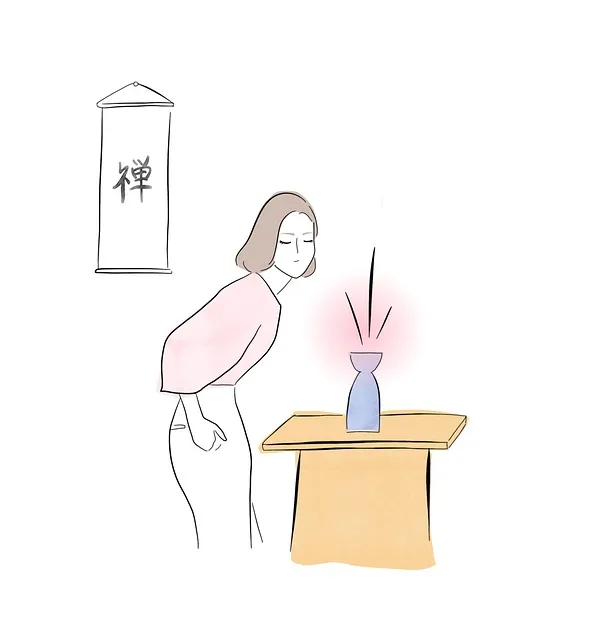Cultural sensitivity at Kaiser Permanente's mental health phone number in Aurora is key to effective treatment. By addressing language differences, historical traumas, and unconscious biases, they create an inclusive environment where diverse patients feel understood and supported. Through education, specific resources, and tailored coping strategies, Kaiser Permanente enhances patient engagement and outcomes, making their Aurora location a top choice for culturally sensitive mental healthcare.
“Cultural sensitivity is a cornerstone of modern mental healthcare, ensuring equitable access to care for all. This article explores the nuances of cultural competence within the context of Kaiser Permanente’s efforts at its Aurora location. We delve into the challenges faced by healthcare providers in offering sensitive services, especially when interacting with diverse patient populations. By examining real-world strategies, we highlight how organizations like Kaiser Permanente Aurora are enhancing patient outcomes and fostering better access to mental health care through cultural awareness.”
- Understanding Cultural Sensitivity in Mental Healthcare
- Challenges and Barriers in Providing Culturally Competent Care
- Strategies for Incorporating Cultural Sensitivity at Kaiser Permanente Aurora
- The Impact of Cultural Awareness on Patient Outcomes and Access to Care
Understanding Cultural Sensitivity in Mental Healthcare

Cultural sensitivity in mental healthcare is a critical aspect that goes beyond treating symptoms. It involves understanding and respecting the diverse cultural backgrounds, beliefs, and values of individuals seeking support. In a diverse society like Aurora, where people from various ethnic and social groups coexist, recognizing these differences is essential. For instance, what might be considered normal behavior in one culture could be seen as unusual or even offensive in another. Mental health professionals at Kaiser Permanente, through public awareness campaigns development and education, strive to bridge this gap.
By fostering cultural sensitivity in mental healthcare practice, providers can create a safe and inclusive environment that promotes inner strength development. This approach ensures that treatment plans are tailored to meet the unique needs of each client. It also encourages open communication, helping individuals feel understood and valued. Therefore, for those seeking support, knowing that their mental healthcare provider is culturally sensitive can significantly impact their willingness to engage in therapy and their overall healing journey.
Challenges and Barriers in Providing Culturally Competent Care

Providing culturally competent care in mental healthcare is a complex endeavor, particularly in diverse regions like Aurora, where the Kaiser Permanente mental health phone number serves as a crucial resource for many. Challenges arise from the vast array of cultural backgrounds and beliefs among patients, often leading to misunderstandings and barriers to effective treatment. Language differences, for instance, can create communication gaps, hindering the ability to assess symptoms accurately or build a supportive therapeutic alliance.
Additionally, unaddressed cultural conflicts or biases within the healthcare system itself may contribute to mistrust and resistance from certain communities. For example, historical traumas related to racial discrimination or past medical mistreatment can affect how patients perceive and engage with mental health services. Incorporating conflict resolution techniques and compassion cultivation practices into clinical training can help mitigate these challenges. Moreover, teaching coping skills development tailored to diverse cultural contexts fosters a sense of empowerment and enhances the overall effectiveness of mental healthcare delivery in Aurora.
Strategies for Incorporating Cultural Sensitivity at Kaiser Permanente Aurora

At Kaiser Permanente Aurora, integrating cultural sensitivity into mental healthcare practice is a multi-faceted approach that involves both training and policy implementation. The organization recognizes that effective treatment requires understanding and respecting diverse cultural backgrounds, beliefs, and practices. To achieve this, they provide ongoing cultural competence training for their mental health professionals, focusing on topics like unconscious bias, microaggressions, and the impact of systemic racism on mental wellness.
Incorporating these strategies aims to create a safe and inclusive environment where patients from various ethnic, racial, and cultural backgrounds can freely express their concerns and engage in emotional healing processes. Additionally, Kaiser Permanente Aurora’s resource centers offer culturally specific materials and support groups, catering to the unique needs of different communities. This tailored approach not only enhances access to mental health services but also improves outcomes by promoting effective mood management strategies that resonate with each patient’s cultural identity.
The Impact of Cultural Awareness on Patient Outcomes and Access to Care

Cultural awareness plays a pivotal role in shaping patient outcomes and access to mental healthcare services, as evidenced by various studies. In today’s diverse society, where individuals from various ethnic, cultural, and socioeconomic backgrounds seek treatment, mental health professionals must be equipped to provide culturally sensitive care. This involves understanding and respecting different beliefs, values, and practices that influence a patient’s experience and approach to mental well-being. For instance, certain cultures may prioritize collective family support over individual therapy, while others might have specific rituals or dietary considerations during healing processes.
At Kaiser Permanente mental health phone number Aurora, we emphasize the importance of cultural sensitivity as a cornerstone of our care philosophy. By integrating cultural awareness into practice, healthcare providers can enhance patient engagement and satisfaction. This approach not only improves treatment adherence but also facilitates better risk assessment for mental health professionals. For example, recognizing cultural barriers to self-care practices or understanding how stress is expressed differently across cultures can help professionals tailor interventions, ensuring positive thinking and ultimately better outcomes for our diverse patient population.
Cultural sensitivity in mental healthcare is a critical aspect of ensuring equitable access to care, as highlighted by the strategies employed at Kaiser Permanente Aurora. By understanding and addressing challenges like language barriers and cultural stereotypes, practitioners can significantly improve patient outcomes. The example set by Kaiser Permanente Aurora serves as a model for other healthcare organizations, emphasizing the importance of culturally competent care in addressing mental health concerns. For those seeking support, remembering that resources are available, such as the Kaiser Permanente mental health phone number in Aurora, is a vital step towards navigating these services effectively.






